![Margaret Barr's Strange Children [ballet], 1955](https://lab.cccb.org/wp-content/uploads/quanticahumor_lab.jpg)
Margaret Barr’s “Strange Children” [ballet], 1955 | State Library of New South Wales | No known copyright restrictions
Quantum physics represents a change of paradigm since it places in check the theories which up to that point gave sense to our understanding of the Universe, space, time and matter, while bringing chance and pre-observation into the picture. The setback has been of “astronomic” dimensions and scientists have been left with the arduous task of calculating, demonstrating, understanding and explaining everything once more. What better attitude to tackle it than humour? Humour is based on humility and the capacity of showing that we are at the limit, and it is at the limit where scientists are working. With this article we start up a series on quantum physics and its influence on our understanding of what we define as “reality”.
K. Chesterton considered nonsense literature to be one of those primitive elements that appear from time to time in the world in order to renew it, enabling us not only to feel that we are “the heirs of all ages” but also “the ancestors of primal antiquity”. And as an example, he compared the originality of Edward Lear’s The Dong with a Luminous Nose with that of the first ship and the first plough. If we must furthermore include it within the greats, we need to show that nonsense literature comes equipped with its own admissible view of the world. “The Iliad is only great because all life is a battle, the Odyssey because all life is a journey, the Book of Job because all life is a riddle.” If Alice in Wonderland has to be one of the greats, “the world must not only be tragic, romantic, and religious, it must be nonsensical also”.
Accepting that the world is a nonsensical place requires a certain dose of humility. Fortunately we have very good reasons to be humble. Humility has often been identified as the essence of a large part of the sense of humour. In an interview about the origins of humour, art philosopher Noël Carroll thanked evolution for having distinguished us with the capacity of finding the recognition of failures in our cognitive system agreeable. We learn through the generalisation of particular events, extracting standards from systematic observations and through trial and error. And it functions more or less well on the majority of occasions, but inevitably it ends up resulting in errors. And evidencing failures in the norms seems funny to us. Our “cognitive fragility” is for us a subject of friendly mockery. We don’t get depressed when we make mistakes, if we did, we would not have got where we are as a species today.
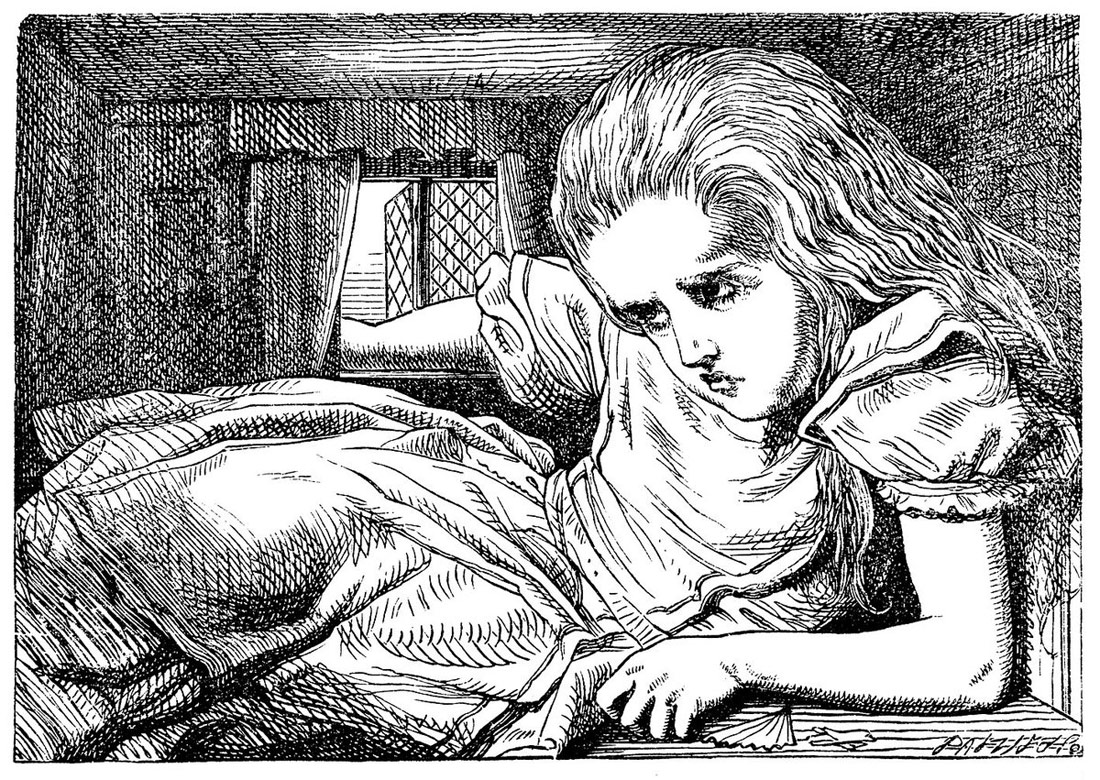
«Alice’s Adventures in Wonderland». Illustration by John Tenniel, 1865 | Wikimedia Commons | Public Domain
The sense of humour is based on humility, on the capacity to recognise that we are at the limit, that what our head says about the world either clashes with our head or alternatively with the world. And it is at that limit where the scientist lives, or indeed anyone who looks out at the world and asks how it works. The sense of humour is revealed as an extra sense for understanding the world when a new aspect is presented to us. Especially since the 20th century, which was witness to the appearance of various primitive elements that radically renewed the world, including quantum physics, searching for laughter has been one way of approaching the truth, or rather, the next available explanation.
So, is a sense of humour the only way of getting to know the world? I have already been quite daring in posing this question, so I will not go so far as to try to answer it, but I can at least suggest a piece of evidence in favour. In my humble opinion, since we are insisting on that term, nobody has better described the growing suspicion that we will never come to understand the world (or alternatively, the maximum perplexity that we experience when considering for what reason we should come to understand it) than Douglas Adams when he wrote that “there is a theory which states that if ever anyone discovers exactly what the Universe is for and why it is here, it will instantly disappear and be replaced by something even more bizarre and inexplicable.”
In order to sit down and listen to what quantum physics has to say about the world, this type of sense of humour is needed, based on a humility that has to enable us to question a good part of all that which we consider set in stone: Each thing that happens has a cause; the room that surrounds me remains the same if I close my eyes. Quantum physics questions those intuitions by considering the world as an enormous set of possibilities that become facts only following observation. And the mechanism that dictates which of all those possibilities will be converted into fact is chance. In that part of the world that remains outside of observation there is room for information safe from the skill of the best spy, who will decline any attempt to find out about our secrets, aware that if he does so, chance will give him the same possibilities of coming up against the message that we have hidden as with a section of The Quixote or some absurd recipe for snails with tofu. What enters into that part of the world does not necessarily conserve its form, although strictly it has not undergone any process of change. It emerges, simply, converted into something else. In that part of the pre-observation world there is also room for computers that operate simultaneously in more states than atoms there are in the universe. It is a part of the oversized world, which is not concerned with respecting the most elementary etiquette, and which permits any inhabitant to be in several different places doing several different things all at once.
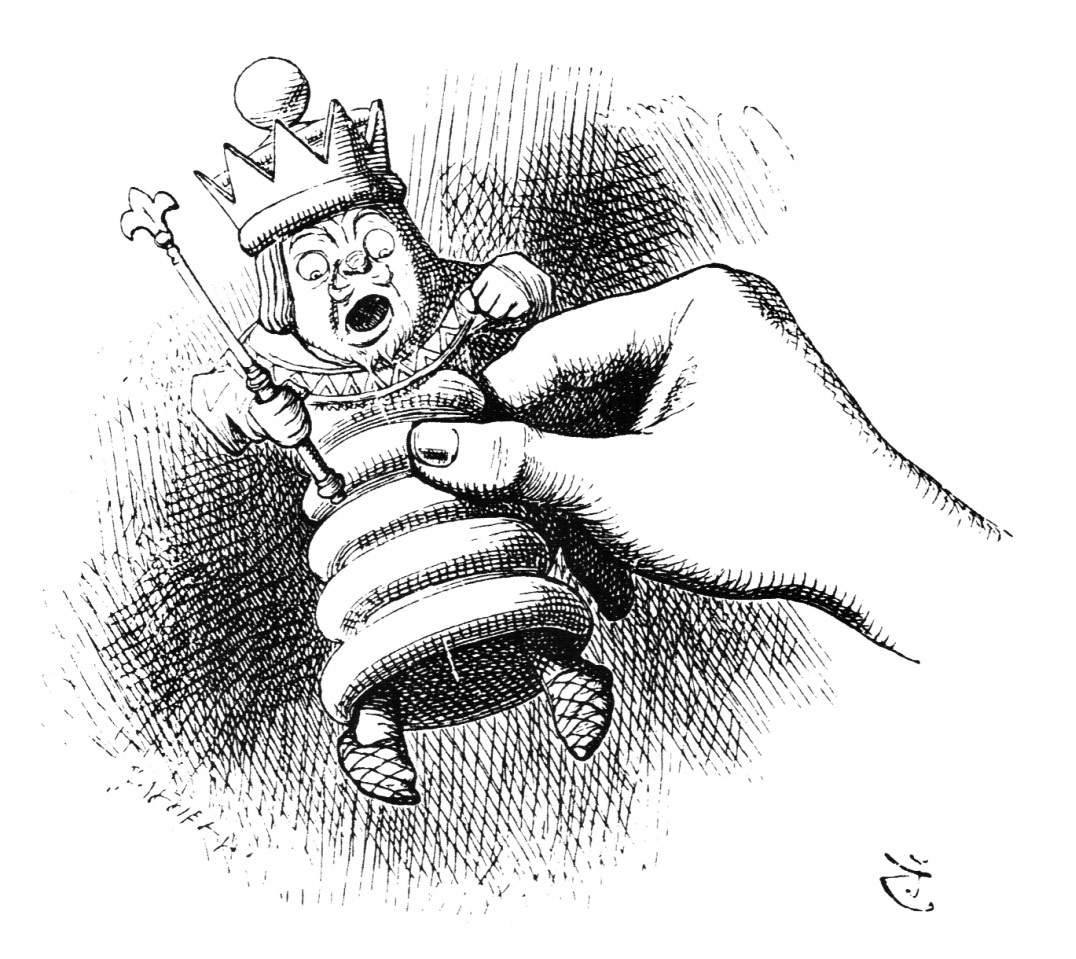
«Through the Looking-Glass», Illustration by John Tenniel, 1871 | Wikimedia Commons | Public Domain
Chesterton could have found in the paradoxes of quantum physics the admissible view of the world to show that nonsense is one of literature’s great tendencies, when inviting us to question the rigidity of the convictions acquired in the routine dealings with objects of our size. Why should it be necessary to respect quantum physics, which explains the microscopic world, through the intuitions created by our macroscopic experience? Edward Lear’s characters with changing moustaches are great because the world is intrinsically random. Through the Looking-Glass is great because there where neither the light nor the eye can reach lies the world of possibilities, where the same goose swims at the same time in a thousand different ponds and Tweedledee and Tweedledum can play rock-paper-scissors coinciding at every turn, even if both are incommunicado at opposite corners of the Universe.
Somebody could object that ultimately, the world of possibilities that become reality by chance is only a theoretical proposal, that it is not a view of the world and that we ought to fight to find a scientific theory that will respect common sense. And major efforts were dedicated to that very same thing during a large part of the 20th century, until in 1964 John Stewart Bell found the way of showing that chance is in effect an admissible view of the world (thanks to which, that quantum encryption and computation that we described above are real technologies). Bell’s theorem, which in reality is a metatheorem, enables it to be demonstrated that the world is fundamentally random and that the properties of things are not defined until somebody or something intervenes to discover them. It is a theorem that functions in a fascinating way, which we will have time to analyse in great depth, and which is included within the series of disappointments of the great scientific revolutions.
Since Copernicus we have no longer been able to consider ourselves the centre of the Universe nor, since Hutton, the origin of time. Darwin rid us of a privileged position among the species and, talking of “cognitive fragility”, Gödel found the San Andreas fault in the fundaments of logic, our great intellectual creation. Bell enters the list of demystifiers of the human genre, showing that our common sense is useless as a guide for understanding the world.
So let’s sharpen our quantum sense in order to access the next available explanation, assisted in this process by the world view of nonsense. After each disappointment we have always been capable of defending ourselves. We evolve once more because we are capable of laughing at it. Let us continue, then, guided by science, in the quest for the next joke.
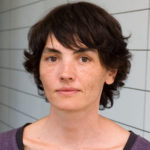
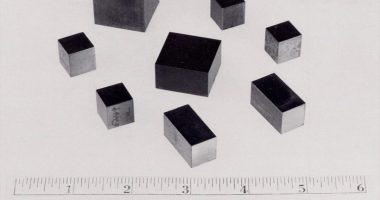
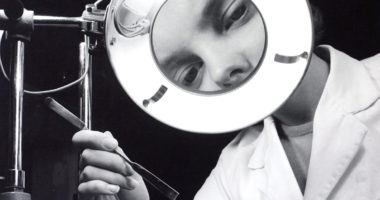



José Luis | 18 July 2020
Muchas gracias por el artículo.
Su exposición nutre frente a las inquietudes del alma, ahora que estamos sumergidos en este mundo oscuro que nos ha traído el COVID-19.
Le seguiremos leyendo y reflexionando desde sus aportes.
J. L.
Leave a comment